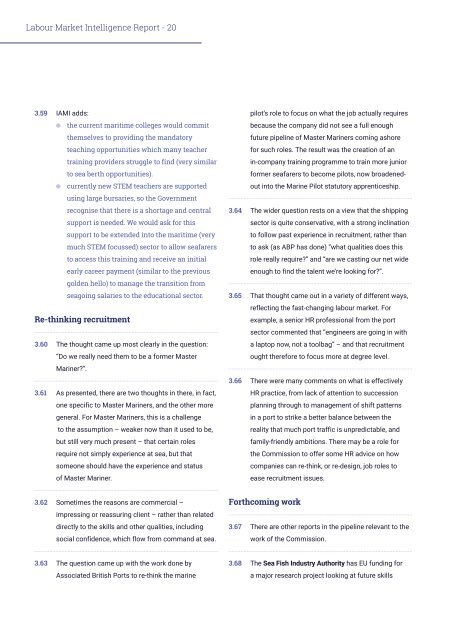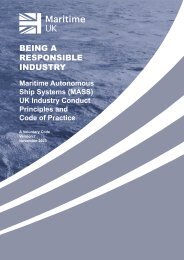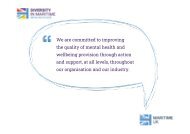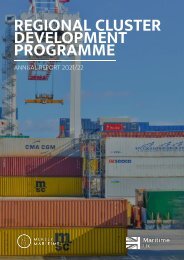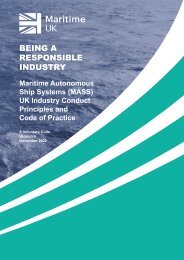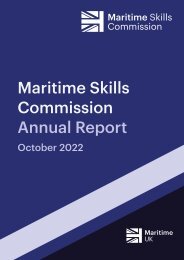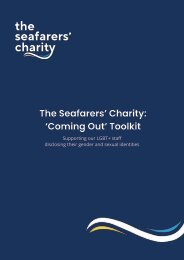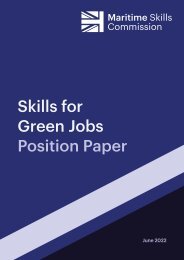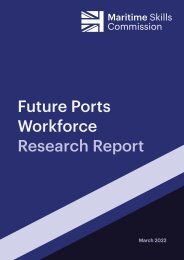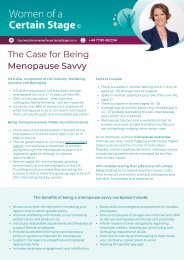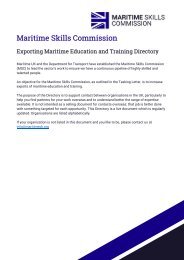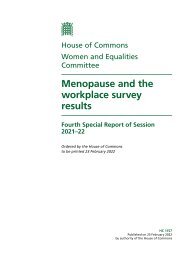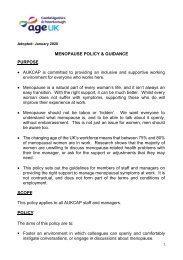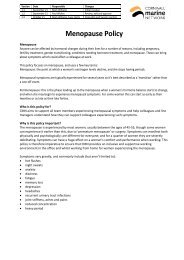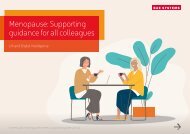Maritime Skills Commission - Labour Market Intelligence Scoping Report - August 2020
Create successful ePaper yourself
Turn your PDF publications into a flip-book with our unique Google optimized e-Paper software.
<strong>Labour</strong> <strong>Market</strong> <strong>Intelligence</strong> <strong>Report</strong> - 20<br />
3.59 IAMI adds:<br />
the current maritime colleges would commit<br />
themselves to providing the mandatory<br />
teaching opportunities which many teacher<br />
training providers struggle to find (very similar<br />
to sea berth opportunities).<br />
currently new STEM teachers are supported<br />
using large bursaries, so the Government<br />
recognise that there is a shortage and central<br />
support is needed. We would ask for this<br />
support to be extended into the maritime (very<br />
much STEM focussed) sector to allow seafarers<br />
to access this training and receive an initial<br />
early career payment (similar to the previous<br />
golden hello) to manage the transition from<br />
seagoing salaries to the educational sector.<br />
Re-thinking recruitment<br />
3.60 The thought came up most clearly in the question:<br />
“Do we really need them to be a former Master<br />
Mariner?”.<br />
3.61 As presented, there are two thoughts in there, in fact,<br />
one specific to Master Mariners, and the other more<br />
general. For Master Mariners, this is a challenge<br />
to the assumption – weaker now than it used to be,<br />
but still very much present – that certain roles<br />
require not simply experience at sea, but that<br />
someone should have the experience and status<br />
of Master Mariner.<br />
3.64<br />
3.65<br />
3.66<br />
pilot’s role to focus on what the job actually requires<br />
because the company did not see a full enough<br />
future pipeline of Master Mariners coming ashore<br />
for such roles. The result was the creation of an<br />
in-company training programme to train more junior<br />
former seafarers to become pilots, now broadenedout<br />
into the Marine Pilot statutory apprenticeship.<br />
The wider question rests on a view that the shipping<br />
sector is quite conservative, with a strong inclination<br />
to follow past experience in recruitment, rather than<br />
to ask (as ABP has done) “what qualities does this<br />
role really require?” and “are we casting our net wide<br />
enough to find the talent we’re looking for?”.<br />
That thought came out in a variety of different ways,<br />
reflecting the fast-changing labour market. For<br />
example, a senior HR professional from the port<br />
sector commented that “engineers are going in with<br />
a laptop now, not a toolbag” – and that recruitment<br />
ought therefore to focus more at degree level.<br />
There were many comments on what is effectively<br />
HR practice, from lack of attention to succession<br />
planning through to management of shift patterns<br />
in a port to strike a better balance between the<br />
reality that much port traffic is unpredictable, and<br />
family-friendly ambitions. There may be a role for<br />
the <strong>Commission</strong> to offer some HR advice on how<br />
companies can re-think, or re-design, job roles to<br />
ease recruitment issues.<br />
3.62<br />
Sometimes the reasons are commercial –<br />
impressing or reassuring client – rather than related<br />
directly to the skills and other qualities, including<br />
social confidence, which flow from command at sea.<br />
Forthcoming work<br />
3.67 There are other reports in the pipeline relevant to the<br />
work of the <strong>Commission</strong>.<br />
3.63<br />
The question came up with the work done by<br />
3.68<br />
The Sea Fish Industry Authority has EU funding for<br />
Associated British Ports to re-think the marine<br />
a major research project looking at future skills


